Last year some economists documented something both surprising and sensible about social media: many people would pay a lot to keep using their favorite platforms, and they would pay a lot if all those platforms could disappear for everyone. They describe today’s major social media as a “collective trap”: the traffic accident that people regret, but also can’t help but want to slow down and see.
Is there a way out of this?
The Berkman Klein Center’s new Applied Social Media Lab at Harvard University is pleased to host, in person and livestreamed, an afternoon of discussions and presentations of new tools and ideas around civil discourse.
Join us on Thursday, September 12th, 2024, from 1:30-5:00 pm ET for a series of panels featuring leading technologists, researchers, and civil society leaders to learn more about the technological and other interventions the ASML is exploring to foster healthier, more satisfying discourse.
Please RSVP to attend in person or via Zoom.
Agenda
11:00 am-12:30 pm – Pre-event: Student Lunch & Learn
A student-focused lunch and learn event, offering an opportunity to connect with BKC staff and representatives from tech-related campus organizations and centers at Harvard. Discover ways to get involved with the Berkman Klein Center, including research and student work, events, and immersing in the BKC community.
1:30-2:00 PM – Opening Remarks
ASML Lab Director Jonathan Bellack introduces the Lab and its mission.
2:00-3:15 PM – Panel discussion: How can we protect civic discourse in an age of fracture?
BKC Faculty Director Jonathan Zittrain hosts a panel discussion to explore how to reboot social media to foster healthy and thriving human interactions. How can we create and refine spaces and processes where people can share their earnest views without fear, explore common ground, and grow intellectually and personally? Does the answer lie in new technology, new practice, or some combination of the two? What role can the University play in building a healthier future?
Panelists include danah boyd, Gordon Pennycook, and Deb Roy.
3:30-4:10 PM – Nymspace: Anonymous Discourse In Closed Groups
Professor Charles Nesson, founder of the Berkman Klein Center, invites audience members to participate in a demo of Nymspace, an online communication platform that enables pseudonymous discussion in closed-group environments. Nesson has used the tool in his classrooms since 2015 as a complement to face-to-face conversation to improve discussion satisfaction and promote group trust.
4:10-4:50 PM – Deliberations and Participatory Democracy
Can technology scale up the deliberative practices that make discourse more constructive? BKC will be introducing a newly acquired, renamed online video-based discourse platform which will be utilized to facilitate constructive dialogue and collective decision-making. Harvard Law School’s Lawrence Lessig and ASML Product Manager Samantha Shireman presents the platform, its aspirations, and what is next for its rollout.
4:50-5:00 PM Concluding Remarks
ASML Lab Director Jonathan Bellack reflects on the day.


